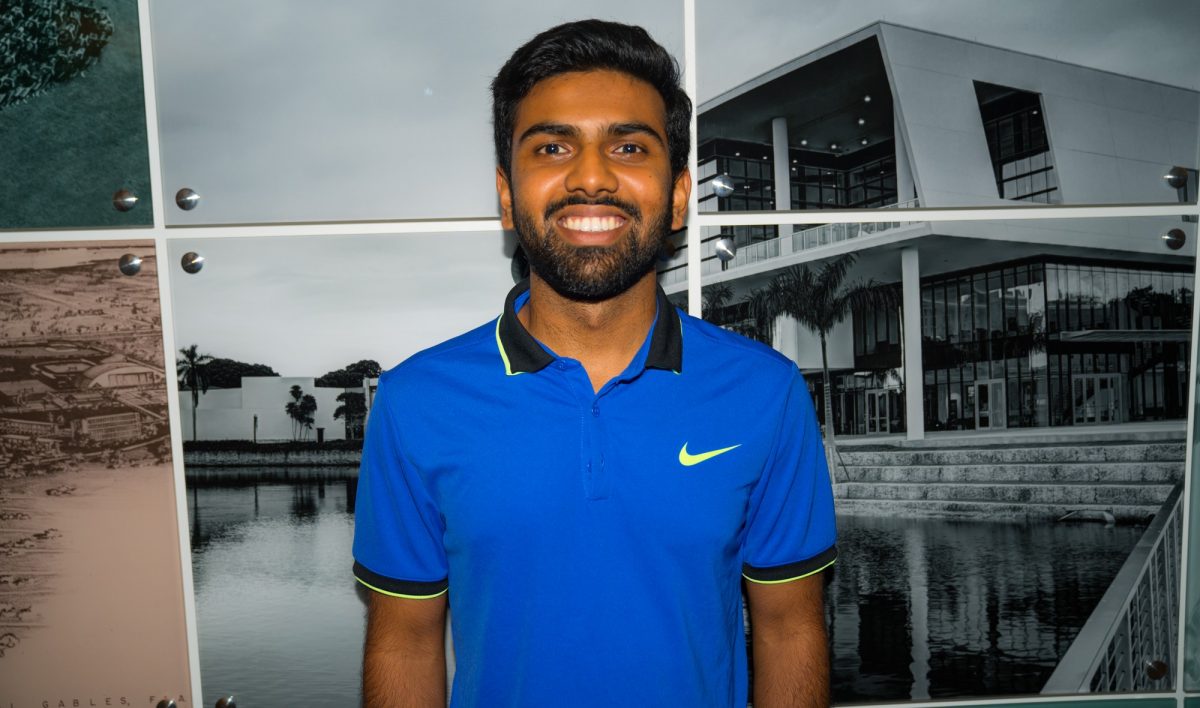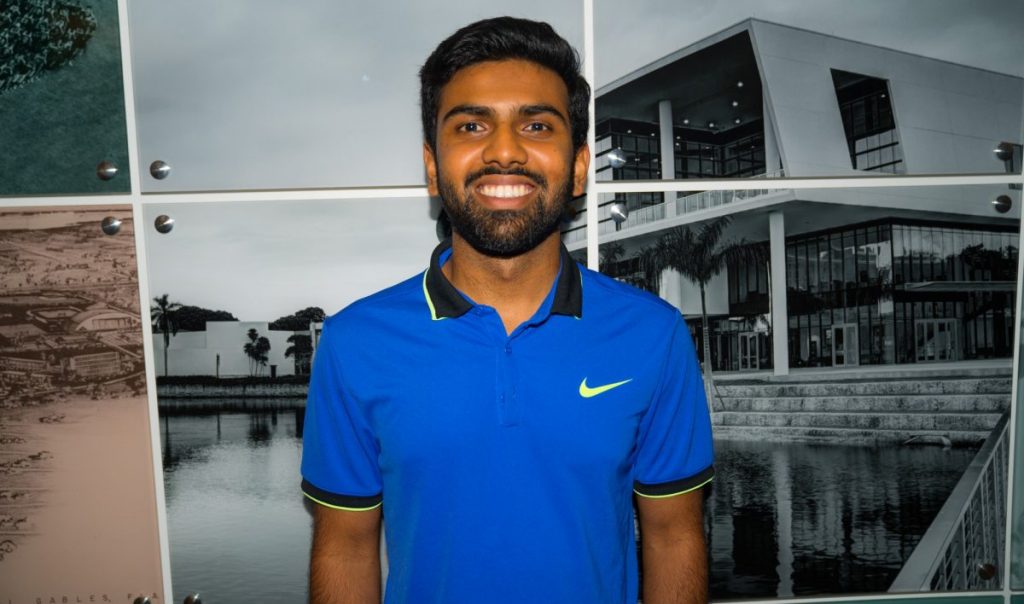
The word “college” is often associated with late nights at the library, parties, heavy drinking and experimentation. It’s not so often that college is synonymous with religious practice, especially if the religion someone practices isn’t well-represented. However, two UM students have found a way to stay true to their lesser known religious roots in college and overcome barriers along the way.
Junior Portia Baudsich, a political science and broadcast journalism double major, said refraining from eating meat, “chanting” as a form of enlightenment and taking time to meditate were normal for her while growing up in Connecticut. The daily routines were part of her religion, Buddhism.
“I’ve just grown up a little bit differently than my friends,” Baudisch said. “I’ve never been to Sunday school or church or anything. Instead of church, we go to meditation.”
Buddhism is a religion based on various traditions, beliefs and spiritual practices taught by Siddhartha Gautama, also known as the Buddha, who became enlightened after practicing deep meditation and reflecting on his experiences in life. The religion aims to focus on the spiritual development of individuals and offer insight into the meaning of life.
According to the Pew Research Center, only 0.7 percent of the United States population practices Buddhism. The United States’ largest religious group, Christians, represents 70 percent of the population.
Baudisch’s parents converted to Buddhism more than 20 years ago. Both were raised Catholic and remembered “disliking it.” Baudisch said her family’s Buddhist affiliation began with her father long before she was born, and when he met her mom, they both shared similar beliefs about the world. Together, they raised Baudisch and her siblings in the Buddhist tradition.
Being part of an underrepresented religion in her hometown of Newtown, Connecticut – a small town where Baudisch said some of her local ice cream shops even had an ice cream named after the town’s priest – drew eyes.
“It was strange in a way,” she said. “It gave me a lot of attention that was weird. When there’s a fifth grader that doesn’t eat meat, everyone’s mom freaks out … I remember being so confused when everyone was busy on Sundays.”
However, Baudisch said she got used to the practices and traditions over time and became proud of her religious identity.
According to the UM Factbook, 8 percent of students in fall 2016 responded that they affiliated with an “other” religion that did not fall into the categories of Catholic, Hindu, Muslim, Jewish or Protestant.
At UM, Baudisch said she has found her own way of continuing her practices.
She meditates regularly, reads Buddhist literature and maintains an open dialogue with her friends about spirituality to “discuss and debate” different issues. Baudisch said continuing to nurture her religion is an important component in her life as it has played an integral role throughout the college experience. One of the most important principles she has remembered is that “everything happens for a reason.”
“We’re all one big energy so when I get stressed or when things don’t go as planned, I always take myself back to my Buddhist practices and try to center myself and remember I am not this egotistical or ego being,” she said. “I am just one small part of this whole working thing.”
Baudisch said even if she doesn’t go to temple as often as she used to back home, it doesn’t make her any less devoted to Buddhism, because she puts the teachings into action in her day-to-day life.
“It’s more important to connect with people on a spiritual level in a sense of meditation and speaking with each other and how to respond to certain situations than it is to sit down and talk and practice it so seriously,” she said.
Senior Viraj Shah has also faced misconceptions about his underrepresented religion, Hinduism. Like Buddhism, Hinduism is practiced by just 0.7 percent of the United States population, according to Pew. Approximately 4 percent of the UM student body in fall 2016 reported identifying as Hindu.

Shah said because Hinduism practitioners exercise worship rituals tailored to celebrate certain deities that serve different times and circumstances, many people believe that his religion is “polytheistic” and “extreme.”
Shah said the decision of which deities to worship is different for each person and is based on preference and family tradition, but it is a monotheistic religion.
“We believe in one God but we believe that one God has many manifestations and different situations,” he said. “The great part is it’s almost like a buffet, in my opinion. You pick and choose what you like the most. There’s a lot of options but at the end of the day, it’s one God.”
Shah was born in India, where the majority of the country practices Hinduism. In 2015, nearly 94 percent of the world’s Hindus lived in India. The United States holds one of the smallest populations of Hindus in the world.
Shah moved to the United States when he was three years old and considers himself a first-generation American but continues to cherish his religious affiliation from his native country. He said Hinduism inspires him when he sees people like his grandmother – who has many health problems – be motivated by the power of prayer.
At UM, Shah, president of the Indian Student Association, has found students with similar religious affiliations in the Hindu Student Council, a student organization that creates spaces for students who practice Hinduism to gather.
“Unlike other prominent religions, there’s not a specific place for Hindus to worship but the Hindu Student Council puts on weekly meetings,” he said. “It’s more so a talk and discussion about different issues more than prayer.”
Even though he is able to unite with other students with similar beliefs, Shah said continuing to practice Hinduism in college has been a constant and conscious effort. One of the most difficult parts, he said, is creating his own definition for his practice in the very broad religion.
“There’s not a single way to follow it,” he said. “India has a lot of different languages and cultural differences even between different states. It’s hard to have a set ritual or prayer time because everyone has different ones.”
However, for Shah, continuing to foster his own religion in his life is something that makes everything, including college, easier. He said when he lays his head on his pillow at night, he knows he can relax because God will take care of him.
“It reminds you that there’s something bigger than you in your life,” he said. “It brings you down-to-earth while at the same time motivates you to do things and strive for excellence.”





